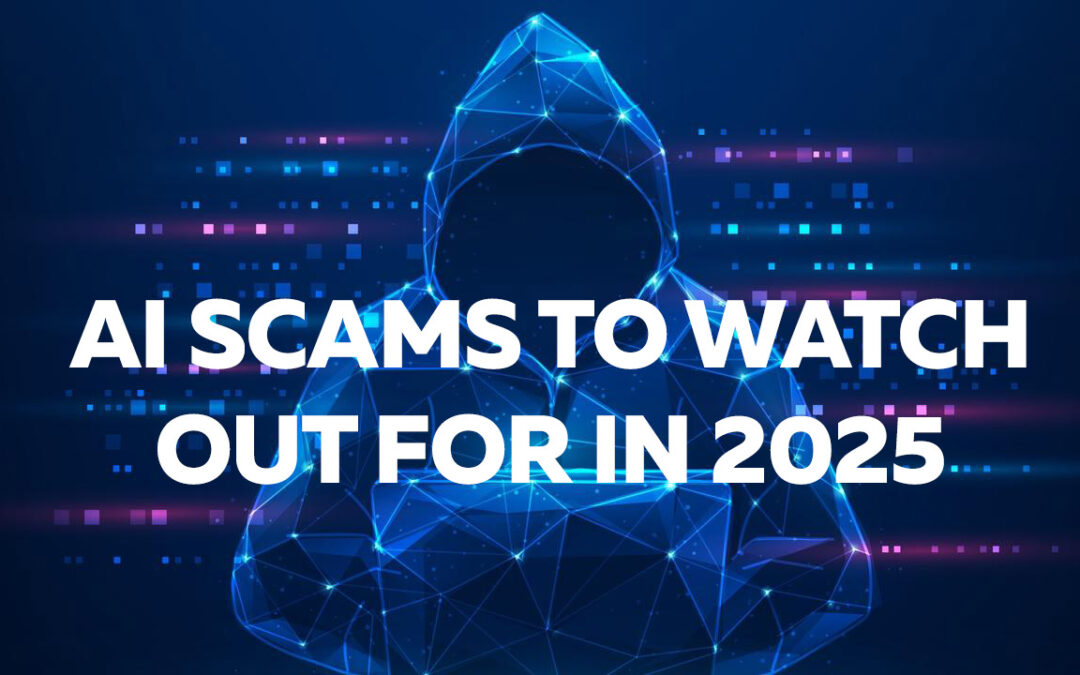AI Scams to Watch Out For
How to Spot Red Flags and Stay Safe in 2025
The rise of artificial intelligence has sparked one of the biggest technology gold rushes in recent history. Alongside the incredible innovation, however, comes a dark side: a growing wave of AI-related scams, shady product launches, and fake “tools” designed to exploit curious users and hopeful entrepreneurs.
Here are the top AI scams you need to watch out for—and how to protect yourself before clicking “buy,” subscribing, or handing over your email address.
1. The “Instant Money with AI” Course Scam
What it looks like:
You’ll often see this one in ads or influencer posts claiming, “I made $10,000/week with this AI tool” or “Turn ChatGPT into cash with this one secret.” These courses are usually generic PDFs or low-quality video guides recycled from free YouTube content.
Red flags:
-
No verifiable proof of earnings
-
Stock images or AI-generated testimonials
-
High-pressure countdown timers or “Only 3 spots left!” tactics
-
No refund policy or vague terms
How to avoid:
Always check if the course creator has a real online presence. Google their name, look for independent reviews, and beware of “gurus” who only appeared in the last 6 months.
2. Fake AI Software or SaaS Platforms
What it looks like:
Some scam sites advertise AI tools that don’t actually exist—or are just front-ends for free APIs with a paid membership attached. You sign up expecting a revolutionary tool, but get an unusable dashboard or access to a free ChatGPT clone.
Red flags:
-
Flashy promo video, no working demo
-
Fake logos of major media coverage (“As seen on Forbes!”)
-
No terms of service or vague contact info
-
All reviews sound the same or appear on shady affiliate blogs
How to avoid:
Look for third-party reviews on Reddit, YouTube, or Trustpilot. If you can’t try a free version or demo first, be extremely cautious.
3. Lifetime Deals That Disappear Overnight
What it looks like:
“You’ll get unlimited access to this AI tool for just $49—forever!” These are often promoted on marketplaces or low-trust sites. After hundreds of users sign up, the product shuts down or access suddenly becomes “limited” unless you upgrade.
Red flags:
-
Unrealistic pricing for high-value features
-
No clear roadmap or company behind it
-
No visible support team or updates
How to avoid:
Stick to reputable deal platforms like AppSumo or ProductHunt, and always research the creator or startup behind the tool.
4. Fake AI Investment or Trading Bots
What it looks like:
AI-powered crypto or stock trading bots that “guarantee” returns using secret algorithms. These scams typically ask for your money upfront and may even show fake dashboards to simulate “earnings.”
Red flags:
-
Promises of guaranteed returns (a huge red flag)
-
“Testimonials” that use deepfakes or avatars
-
Unlicensed financial advice or platforms
How to avoid:
Never trust bots that require large upfront deposits. Always verify if the company is registered with proper financial regulators.
5. Cloned Influencers and Deepfake Pitches
What it looks like:
Scammers are now using AI to clone the voices and faces of trusted tech influencers to promote fake tools, crypto schemes, or investment pitches. These deepfakes are often used in Facebook and YouTube ads.
Red flags:
-
Ads that look “off” in audio or lip sync
-
Influencers “endorsing” products that aren’t on their real channels
-
Too-good-to-be-true language or aggressive pitches
How to avoid:
Always double-check influencer content directly on their verified platforms. If something seems off—it probably is.
How to Stay Safe in the AI Gold Rush
-
Use WHOIS or domain lookup tools to check how old a site is
-
Check reviews beyond testimonials—Reddit, Quora, and YouTube are good places to verify
-
Google the product name + “scam” or “review” before buying
-
Use a virtual card or PayPal for purchases to protect your financial info
-
If it promises “easy money,” it’s almost certainly a scam
- Contact us to help guide you through it all.
Final Thoughts
AI is a transformative technology—but just like any boom, it’s attracting scammers who prey on excitement, confusion, and FOMO. Stay informed, stay skeptical, and take a moment to research before jumping in. If you’re serious about using AI for real business or productivity gains, stick with trusted tools, vetted platforms, and communities that value transparency.
Have you come across an AI scam recently? Drop a comment below—we’d love to investigate and spread awareness.


Recent Comments